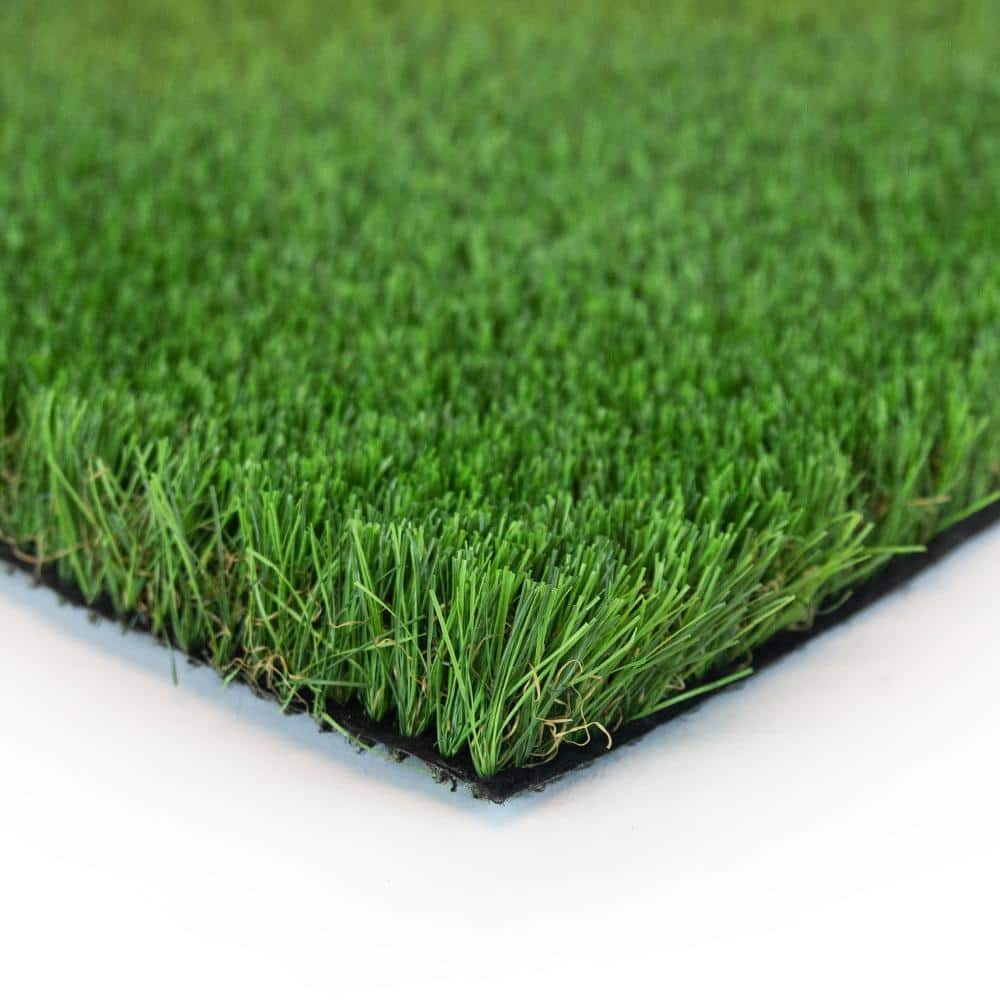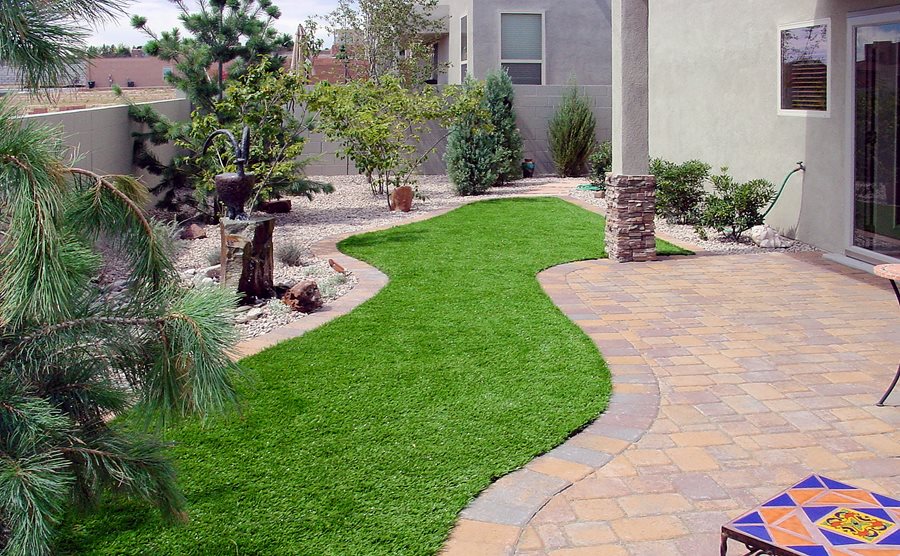Best Phoenix Turf Companies Focusing on Synthetic Grass Solutions
Best Phoenix Turf Companies Focusing on Synthetic Grass Solutions
Blog Article
Look Into the Environmental Perks of Opting for Synthetic Grass Solutions
The adoption of synthetic grass solutions offers an engaging opportunity to address pressing ecological difficulties. By substantially minimizing water usage and reducing the application of hazardous chemicals, these alternatives not only advertise lasting landscaping but likewise safeguard local ecosystems. Moreover, the reduced carbon footprint linked with reduced upkeep activities adds to a more lasting approach to land monitoring. The ramifications of these advantages extend beyond simple preservation efforts, increasing concerns about their long-term effect on environment preservation and overall environmental equilibrium. Checking out these dimensions reveals a complex interplay worth taking into consideration.
Water Preservation Perks
One of the most considerable advantages of synthetic turf is its ability to conserve water. Traditional grass yards require considerable watering, especially in locations vulnerable to dry spell or water limitations. On the other hand, synthetic grass does not require watering, dramatically lowering the general demand for water resources. This attribute is especially helpful in deserts where water scarcity is a pushing worry.
By eliminating the demand for routine watering, fabricated grass adds to sustainable landscape methods and helps alleviate the environmental effect of too much water consumption. Additionally, the conservation of water encompasses the reduction of overflow, which can bring about dirt disintegration and waterway contamination.
In addition, the installation of synthetic grass allows homeowners and communities to allot water resources much more effectively, concentrating on essential uses such as drinking water and agriculture. The change in the direction of artificial turf not only promotes accountable water usage however additionally straightens with more comprehensive environmental goals focused on preserving natural deposits.
As neighborhoods progressively focus on sustainability, the water preservation advantages of artificial turf present a compelling case for its adoption in commercial and residential landscaping jobs.
Reduced Chemical Usage
The transition to synthetic grass significantly lowers the dependence on chemical therapies frequently utilized in natural turf maintenance. Traditional turf monitoring commonly entails the application of herbicides, fertilizers, and chemicals to promote development and control pests. These chemicals can pose risks to human wellness, neighborhood wildlife, and the environment, adding to soil and water contamination.
In contrast, man-made lawn gets rid of the requirement for these damaging compounds. By reducing the launch of synthetic substances into the ecological community, synthetic turf promotes much healthier dirt and water systems.
In addition, the lack of chemical overflow related to artificial grass installments helps safeguard local waterways from air pollution, supporting aquatic life and keeping biodiversity. Artificial turf companies phoenix. As neighborhoods progressively prioritize sustainable methods, going with synthetic grass offers a sensible service that aligns with ecological preservation objectives. Via this change, homeowner can enjoy lush eco-friendly areas without jeopardizing ecological health and wellness, leading the way for a much more lasting see future
Reduced Carbon Footprint

Moreover, the installation of synthetic grass can lead to substantial water preservation. Natural lawns require significant amounts of water for irrigation, which not just includes in the carbon impact connected with water removal and treatment however additionally stress regional water sources. In contrast, synthetic grass needs very little upkeep, needing no watering, thus substantially decreasing water use and its connected energy costs.
Additionally, the durability of synthetic turf adds to its decreased carbon influence. With a lifespan of approximately 15 years or even more, the need for regular replacements is diminished, leading to much less waste and reduced power consumption in production and dealing with traditional lawn options. On the whole, synthetic grass offers a lasting option for eco aware landscaping.
Habitat Preservation
Habitat conservation is a crucial consideration in the argument over landscaping options, particularly when comparing synthetic grass to all-natural lawn. Natural yard lawns frequently need comprehensive upkeep, including using fertilizers, herbicides, and pesticides, which can negatively influence regional environments. These chemicals can seep into the dirt and waterways, hurting indigenous vegetation and fauna and interrupting neighborhood habitats.
Fabricated turf removes the requirement for dangerous chemicals, consequently shielding neighboring wild animals and preserving the honesty of surrounding ecological communities. The installment of artificial lawn can lead to the conversion of previous lawn locations into even more biodiverse landscapes, such as pollinator gardens or native plant areas, which can support neighborhood wild animals.
Ultimately, the shift to synthetic turf not just conserves water and minimizes maintenance initiatives however also promotes a more harmonious partnership in between human tasks and the native environment, advertising habitat preservation while doing so.
Long-Term Sustainability
Lasting sustainability is an essential consider reviewing the advantages of man-made lawn over typical lawn lawns. One of the most considerable advantages of synthetic grass is its durability; it can last as much as 15-20 years with marginal maintenance, whereas all-natural lawn calls for frequent reseeding and substitute. This durability minimizes the need for continuous resources, such as water, plant foods, and chemicals, which are important for preserving a healthy grass lawn.
Furthermore, fabricated lawn contributes to a reduction in carbon discharges connected with grass treatment equipment. Typical grass frequently require gas-powered lawn mowers, trimmers, and blowers, all of which add to air contamination. Arizona artificial turf. In contrast, synthetic grass removes the demand for such tools, advertising a cleaner environment
In addition, the manufacturing of artificial lawn increasingly makes use of this article recycled materials, improving its sustainability profile. As makers embrace green practices, the ecological impact of synthetic grass proceeds to reduce.

Verdict
The adoption of fabricated turf solutions offers considerable ecological advantages, including considerable water conservation, decreased dependence on damaging chemicals, and a lower carbon footprint. Fabricated lawn help in preserving natural environments by lessening land disruption and advertising lasting sustainability via the usage of sturdy materials. Collectively, these aspects underscore the capacity of synthetic grass to contribute favorably to environmental wellness and provide a sensible alternative to traditional landscaping techniques in a significantly resource-conscious world.
In comparison, synthetic lawn does not require watering, significantly reducing the overall demand for water resources. By decreasing the release of artificial compounds right into the ecological community, man-made grass advertises healthier soil and water systems.
In addition, the setup of fabricated turf can result in considerable water conservation. In comparison, man-made turf needs minimal maintenance, needing no watering, thereby dramatically decreasing water use and its connected power costs.

Report this page